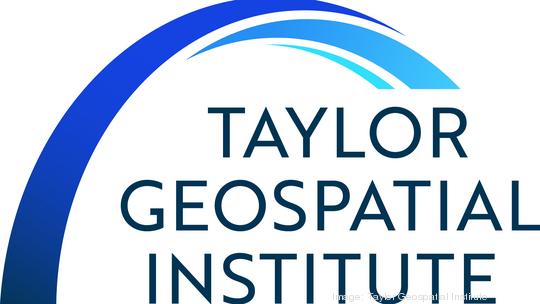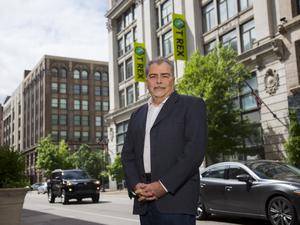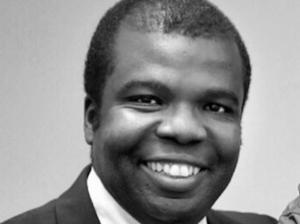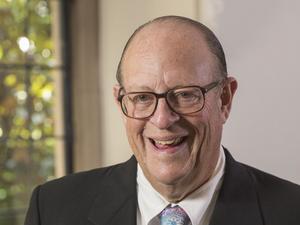
Eight research institutions are joining forces to create the Taylor Geospatial Institute, a new entity based locally and aimed at expanding St. Louis’ position as a hub of geospatial research and innovation.
With the newly created center envisioned as becoming a key component in St. Louis' ongoing effort to bolster its burgeoning geospatial technology sector, officials behind the Taylor Geospatial Center say they believe it can play the same role in geotech that the Donald Danforth Plant Science Center has in elevating St. Louis’ prowess in plant science and agriculture innovation.
The launch of Taylor Geospatial Institute is being funded through a “legacy investment” from Andy Taylor, executive chairman of Clayton-based rental car giant Enterprise Holdings Inc., and with capital from its eight members. Member institutions include the Donald Danforth Plant Science Center, Harris-Stowe State University, Missouri University of Science & Technology, Saint Louis University, University of Illinois Urbana-Champaign, University of Missouri-Columbia, University of Missouri-St. Louis and Washington University.
“Geospatial is the critical technology in nearly everything we do, and it is imperative that St. Louis have the world’s leading geospatial research institution to fulfill our promise as the global center for geospatial technology in the next decade,” Taylor, who is also founding chair of economic development group Greater St. Louis Inc., said in a statement. “It is my hope that this institute will cement St. Louis as the world’s true center for geospatial excellence.”
The amount of funding being pledged by Taylor and the institute’s eight members was not disclosed.
The Taylor Geospatial Institute initially will be located at SLU. Its creation comes as regional leaders have made it a priority to turn St. Louis into a top market for the geospatial industry, a move that overlaps with the development of the National Geospatial-Intelligence Agency's new $1.7 billion western headquarters in north St. Louis. GeoFutures, an initiative of Greater St. Louis Inc., formed in October 2019 to boost the region’s geospatial sector and in June 2020 released a report aimed at providing a blueprint on how St. Louis can advance that mission. That report included a call to form a “Geospatial Research Center of Excellence” that could foster collaboration between universities and accelerate geotech commercialization.
Greater St. Louis Inc. CEO Jason Hall said the Taylor Geospatial Institute will be critical to positioning St. Louis as the leader in research and development initiatives in geospatial technology, with its mission akin to that of the Danforth Center in Creve Coeur.
“When you think of that for plant science, you think of the Danforth Center. When you think of that for geospatial now, you’ll be thinking of the Taylor Geospatial Institute.”
Hall said an entity like the Taylor Geospatial Institute is important to the region’s geospatial efforts because previous economic development efforts in areas like agriculture technology and biotechnology have indicated that innovation attracts companies and entrepreneurs to the region.
“If you really want to be the global leader, similar to what we learned in plant science, you have to be the epicenter of innovation,” Hall said. "You want to be where the new ideas are being created and have the kind of facilities that support that global competitive research. That’s the hallmark of a great global city.”
With its eight member institutions that include more than 5,000 faculty members and 100,000 students, the Taylor Geospatial Center aims to be a “regional hub for access to and development of technology powered by big data analytics and computing resources,” officials said. The institute’s research efforts will take a broad approach at advancing research focused on geospatial technology, which involves the collection and analysis of data involving location.
“It’s hard to think of a thing nowadays that doesn’t involve location, doesn’t involve scanning the environment and identifying where things are. We’ve learned particularly with the pandemic the last couple years — how vital tracking spread is with that,” said SLU President Fred Pestello.
The new research collaborative said it plans to target areas that include food security, geospatial science and computation, health care, and national security. The new institute says it also will seek to attract geospatial talent to the region through efforts like a fellows program, visitors program, funding opportunities and the ability to use state-of-the art geospatial technologies.
Officials shared the video below on Thursday in announcing the Taylor Geospatial Institute.
Thursday’s announcement on the launch of the Taylor Geospatial Institute comes just days ahead of the 2022 GEOINT Symposium, the key conference for the geospatial intelligence industry, which begins Sunday in Aurora, Colorado, just outside Denver. Leaders from St. Louis have used the conference in past years to position itself as a leader in geospatial technology and will be sending a delegation to this year’s symposium.
“This is going to be a huge gust of wind in the St. Louis sail as we take our global innovation brand of St. Louis to the global stage in Denver next week,” said Hall, who is attending this year’s event. “The Taylor Geospatial Institute strengthens the value proposition of why you really need to be here.”
St. Louis hosted GEOINT in 2021 and will house the conference again in 2023 and 2025.











